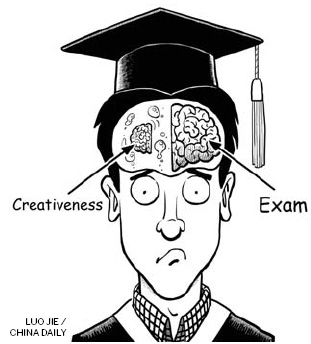True education reform still elusive

All over the globe, national education systems address contradictory agenda. They must ensure fairness, help the weakest students, provide an environment in which the best students can excel, and encourage all students to learn to the best of their ability. In China, the contradictions faced by education policymakers are exacerbated by the intense competition for a seat in universities.
This competition creates several problems. First, to ensure fairness in selecting the best students, university administrators are forced to rely on examinations. Without exams, many students and their families would lose faith in the university selection process and accuse authorities of corruption. As a result of the reliance on exams, secondary education in China is entirely focused on exam preparations.
Some critics say that since Chinese secondary teachers focus on exam preparations, they do not have the time to encourage students to be creative, to develop their individual interests or to work on analytical skills that are not directly relevant to the exams. Besides, the focus on exam success alienates students who do not do well in exams. These students are likely to drop out of school altogether rather than face repeated failure in classes. The exam-centered nature of Chinese secondary education lets down the most elite as well as the most mediocre of Chinese students.















